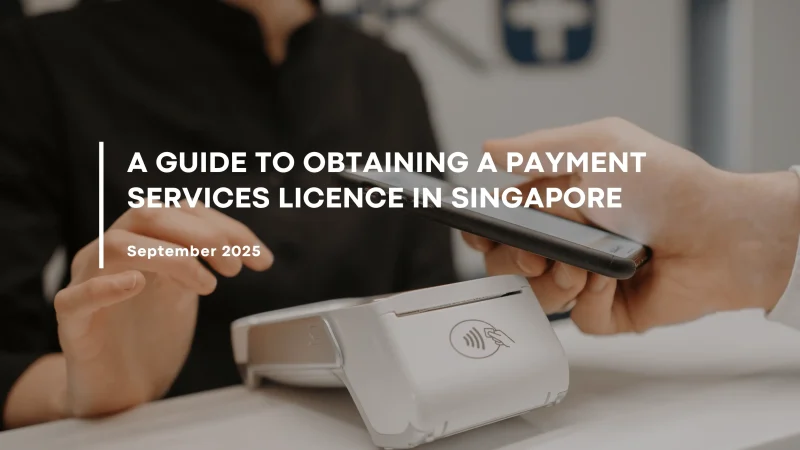Disputes are an inevitable part of business and personal interactions. Whether in commerce, employment, construction, or other sectors, conflicts arise due to differences in opinions, contract breaches, or regulatory compliance issues. Dispute resolution refers to the various processes used to resolve conflicts between parties without resorting to lengthy and costly litigation.
In today’s dynamic legal landscape, businesses and individuals must understand the full spectrum of dispute resolution mechanisms available to them. With the right legal guidance, disputes can be handled efficiently, preserving business relationships and minimizing financial loss.
Types of Dispute Resolution Mechanisms
1.Litigation
Litigation is the traditional court-based process where disputes are resolved through judicial proceedings. While litigation offers a structured legal framework, it is often time-consuming and expensive. In Singapore, litigation is governed by the Rules of Court and conducted in various courts, including the State Courts, the High Court, and the Court of Appeal.
Key Features of Litigation:
- Legally binding court judgments
- Full disclosure of evidence through discovery
- Formal trial proceedings with strict procedural rules
- Appeal mechanisms available
2. Arbitration
Arbitration is a popular alternative to litigation where an independent arbitrator hears the dispute and makes a legally binding decision. Singapore is a leading hub for international arbitration, with institutions such as the Singapore International Arbitration Centre (SIAC) providing structured arbitration services.
Benefits of Arbitration:
- Confidentiality in proceedings
- Flexibility in selecting arbitrators and procedures
- Faster resolution compared to litigation
- Enforcement under the New York Convention
3. Mediation
Mediation is a voluntary, confidential, and structured negotiation process where a neutral third party (mediator) facilitates discussions between disputing parties. Singapore’s Mediation Act 2017 provides a legal framework for the enforcement of mediated settlements.
Advantages of Mediation:
- Encourages cooperative problem-solving
- Cost-effective and time-efficient
- Maintains business relationships
- Non-binding unless parties agree to a settlement
4. Negotiation
Negotiation is the simplest and most informal dispute resolution method. It involves direct discussions between parties to reach a mutually acceptable resolution. While negotiation does not require third-party intervention, legal advisors often play a crucial role in ensuring fair agreements.
Key Aspects of Negotiation:
- Flexibility in reaching solutions
- Private and confidential
- Cost-effective with no formal legal procedures
- Preserves relationships by avoiding adversarial confrontation
5. Adjudication
Adjudication is commonly used in construction and contractual disputes. It provides a quick resolution by a neutral adjudicator, whose decision is binding unless challenged in court or arbitration. The Singapore Security of Payment Act (SOPA) governs adjudication in construction disputes.
Choosing the Right Dispute Resolution Mechanism
The choice of dispute resolution method depends on various factors, including:
- Nature of the dispute (e.g., contractual, commercial, family law)
- Time and cost considerations
- Confidentiality needs
- Enforceability of decisions
- Impact on business relationships
A strategic approach to dispute resolution ensures that conflicts are managed efficiently while protecting the interests of all parties involved.
The Role of Legal Experts in Dispute Resolution
Expert legal counsel plays a crucial role in navigating dispute resolution processes. Lawyers assist in:
- Drafting dispute resolution clauses in contracts
- Representing clients in negotiations, mediation, and arbitration
- Advising on legal strategies for litigation
- Ensuring compliance with relevant laws and regulations
Dispute Resolution in Key Industries
Corporate and Commercial Disputes
Businesses frequently face disputes related to contracts, mergers and acquisitions, joint ventures, and shareholder disagreements. Efficient dispute resolution mechanisms help companies maintain stability and avoid financial losses.
Employment Disputes
Workplace conflicts involving wrongful termination, discrimination, or wage disputes can be resolved through mediation and negotiation, preventing unnecessary legal battles.
Construction and Real Estate Disputes
Delays, payment disputes, and contract breaches in the construction industry often require adjudication or arbitration for a swift resolution.
Intellectual Property Disputes
With the rise of digital innovation, IP disputes over trademarks, copyrights, and patents require specialized dispute resolution strategies.
Banking and Finance Disputes
Financial institutions and investors encounter disputes related to fraud, regulatory compliance, and contractual obligations. Arbitration and litigation are commonly used to resolve such conflicts.
PDLegal’s Expertise in Dispute Resolution
PDLegal has a strong track record in handling complex dispute resolution matters across various industries. Our team of legal experts provides tailored strategies to help businesses and individuals resolve conflicts efficiently. Whether through litigation, arbitration, mediation, or negotiation, we ensure our clients receive the best possible legal representation.
Conclusion
Understanding dispute resolution is essential for businesses and individuals seeking to protect their interests and resolve conflicts effectively. With multiple mechanisms available, choosing the right approach can significantly impact the outcome of a dispute. Seeking legal advice from experienced professionals ensures that disputes are handled with expertise, preserving relationships and safeguarding financial stability.
FAQs
What is meant by dispute resolution?
What are the 5 dispute resolutions?
The five common dispute resolution methods are negotiation, mediation, conciliation, arbitration, and litigation. Each method varies in formality, cost, and time, with negotiation being the least formal and litigation being the most structured and legally binding.
What are the examples of dispute resolution?
Examples of dispute resolution include mediation in family law cases, arbitration in commercial contract disputes, conciliation in workplace conflicts, and litigation for business lawsuits. Another example is negotiation between companies to settle financial disputes outside of court.
What are the 3 methods of dispute resolution?
The three primary methods of dispute resolution are negotiation, mediation, and arbitration. Negotiation is informal and involves direct discussions, mediation involves a neutral third party facilitating a resolution, and arbitration results in a binding decision made by an independent arbitrator.
How to solve a dispute?
To solve a dispute, the parties should first attempt direct negotiation to reach a mutual agreement. If unsuccessful, mediation or arbitration with a neutral third party can be used to facilitate a fair resolution, and as a last resort, litigation can be pursued through legal proceedings in court.
How to make dispute resolution?
Dispute resolution can be established by defining clear processes and selecting the appropriate resolution method based on the nature of the conflict. Businesses and organizations often include dispute resolution clauses in contracts and may set up structured mechanisms such as mediation panels or arbitration agreements to handle disputes efficiently.


